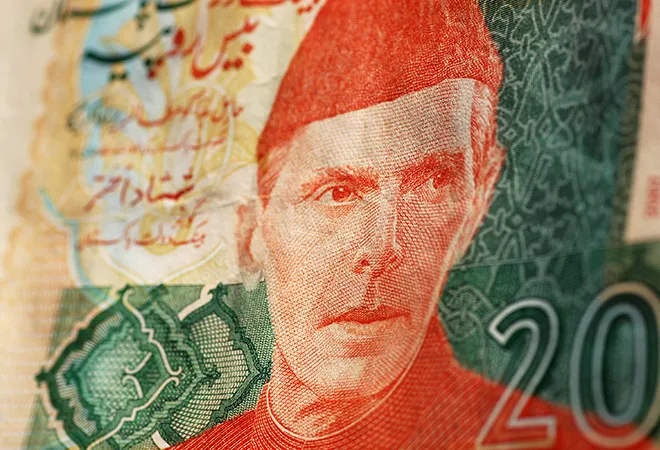
The FATF (Financial Action Task Force) is scheduled to hold its next plenary meeting in Paris between 16–21 February 2020. There is considerable interest in India over the possible blacklisting of Pakistan in this plenary because of its inability to honour its own commitments to strengthen regulations against terror financing and money laundering. It is useful to analyse the case in light of various assessments and speculations with regard to Pakistan’s continuation either in the greylist or further demotion into the blacklist. Besides, also bringing to light FATF’s policies, practices and procedures in this regard.
FATF was established in 1989 to address G7 concerns about money laundering. It was only after 9/11 that FATF evolved the standards in its fight against terror financing and added these to its mission. FATF is not a formal international organisation but rather a task force composed of member governments who agree to fund the FATF on temporary basis with specific goals and projects. The FATF mandate focuses only on the fight against laundering of proceeds of crimes and the financing of terrorism.
High-risk and other monitored jurisdictions
The FATF identifies jurisdictions with weak measures to combat money laundering and terrorist financing (AML/CFT) in FATF public documents that are issued three times a year after the plenary meetings. The FATF’s public statement identifies:
- Countries or jurisdictions with such serious strategic deficiencies that the FATF calls on its members and non-members to apply counter-measures or the so-called blacklist.
- Countries or jurisdictions for which the FATF calls on its members to apply enhanced due diligence measures proportionate to the risks arising from the deficiencies associated with the country, the so-called greylist.
In the international financial markets, there is a common feeling that a potential blacklisting by the Financial Action Task Force (FATF) could result in a freeze of capital flows and lower investment to the listed countries. This acts as a pressure point for the designated countries.
Neither FATF nor its plenary meetings, being concerned with technical issues relating to the regulation and monitoring of international money transfers, attract much media attention because of any great public interest in their proceedings. However, the forthcoming FATF plenary meeting, as have some of the other past meetings, attracted lot of attention in the Indian subcontinent. This happened primarily because Pakistan was most recently added to the greylist after the June 2018 plenary meeting (earlier it had been on that list between June 2010 and February 2015). While it is felt in India that Pakistan should be raised to the blacklist, Pakistani feels that it should be removed from the greylist. It is in this context that the discussion below is quite relevant.
Although, there is a feeling in Pakistan that they would be removed from the greylist in the coming plenary meeting, their government looks resigned to continuation of its place in the FATF greylist for the time being.
As the government of Pakistan admits in its MEFP (Memorandum on Economic and Financial Policies) attached to the letter of intent submitted to the IMF ‘s December 2019 first review of Pakistan under the extended fund facility and request (IMF Country Report No.19/380, December 2019), “despite the significant progress already achieved to date, in consultation with staff, the October end 2019 SB related to actions on AML/CFT to help exit the FATF greylist had to be reset to June 2020 end because of implementation constraints.”
Thus, there is very little chance of Pakistan exiting the greylist at the end of the February 2020 plenary even with the assistance of its all-weather friend China, the current president of the FATF.
There is also another debate about whether Pakistan will be put in the blacklist now or removed from the greylist at the next plenary in June 2020 under the presidency of China.
While a lot has been written about these possibilities in the media, almost all are based on incomplete/false assumptions. There is one school of thought, whose arguments are based on the assumption that, ‘Pakistan requires 12 votes out of total 39 in the plenary meeting of the FATF to land back in the safe “whitelist” from “greylist”, while another argument is that Pakistan needs the support of only three of FATF’s 39 members to get out of the “blacklist”, and it is sure to get the votes of China, Malaysia and Turkey.’ Unfortunately, both are based on wrong premises.
According to the official FATF publication, Financial Action Task Force Mandate (2012-2020), which commenced on 20 April 2012 and will be valid until 31 December 2020, “The Plenary is the decision-making body of the FATF and Its decisions are taken by consensus.” (Art. 19)
This was confirmed in a communication with the author from the FATF secretariat, which reaffirmed that “the FATF Plenary which meets three times per year as indicated in the FATF Mandate, the FATF Plenary takes its decisions by consensus, not through majority vote.” This includes any decision concerning the list of high-risk jurisdictions.
There are two implications of consensus-based decisions in the FATF plenary. Firstly, with the assured support of China, Pakistan will be able to avoid being blacklisted. Secondly, India- being a plenary member, can block Pakistan being taken off the greylist.
Whether India should or will take this route is a political decision but there is nothing in international law that inherently prohibits India from taking such an action. After all, China, the current FATF President, has for the past more than a decade made use of the consensus principle to block India’s membership in NSG in face of support for such an admission by all other NSG members.
The views expressed above belong to the author(s). ORF research and analyses now available on Telegram! Click here to access our curated content — blogs, longforms and interviews.




 PREV
PREV


